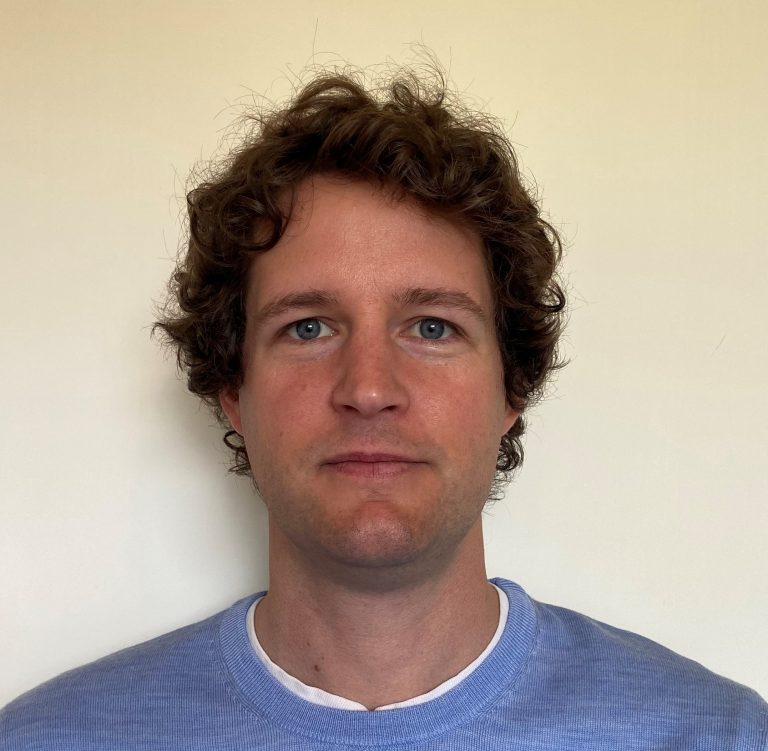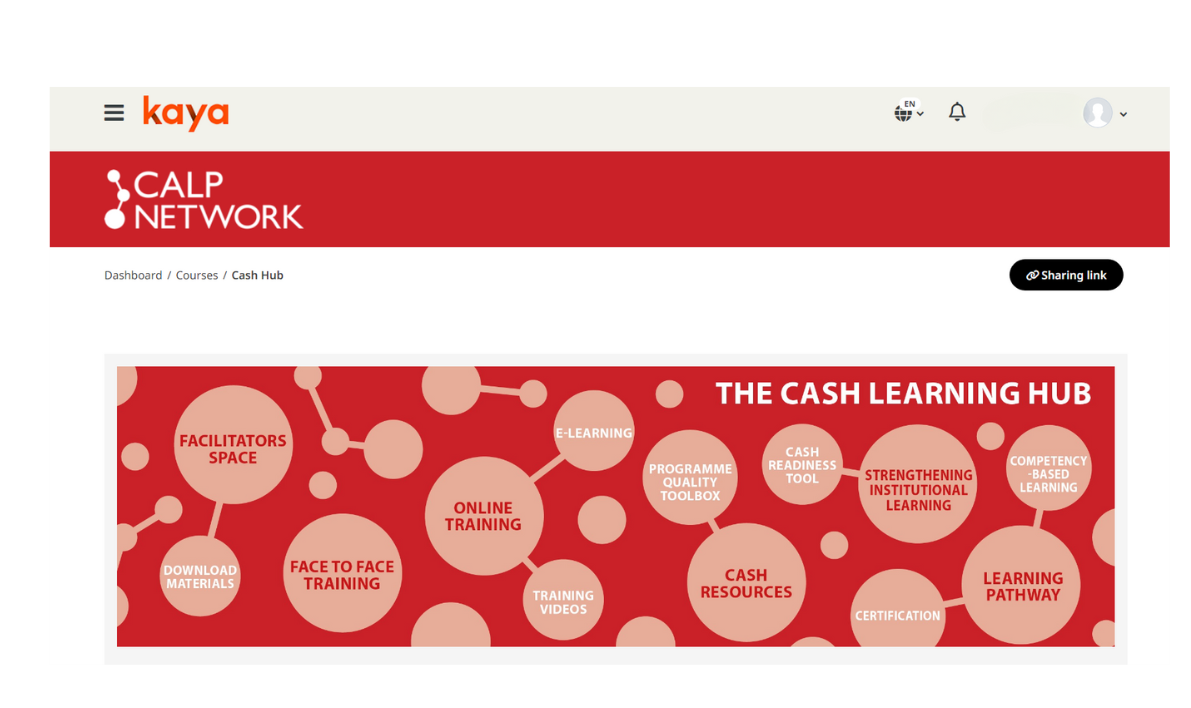CALP Network is one of the HLA’s longest standing partners and have contributed immensely to the wealth of content available on Kaya, our free online learning platform. CALP Network currently uses the Kaya Share product to enrich thousands of humanitarians. We caught up with Greg Rodwell, Learning and Development Coordinator at CALP Network for a ‘partner spotlight’ to reflect on successes of the partnership and what the future holds.
Hi Greg, what does your role – Learning and Development Coordinator at CALP Network entail?
As Learning & Development Coordinator I lead the strategic development of the CALP Network’s training agenda, ensuring reach and maximising impact, promoting integration of CALP materials and other Cash and Voucher Assistance (CVA) resources into humanitarian courses and standards.
What kind of learning opportunities does CALP Network offer?
The CALP Network offer a range of learning, from assisting organisations in developing readiness and capacity for delivering cash and voucher programming, to short micro-learnings aimed at individuals.
Kaya hosts CALP Network’s Cash Learning Hub, this is a one-stop shop for all learning needs on the subject of Cash and Voucher Assistance, with content developed by multiple organisations.
The Cash Learning Hub contains e-learnings, training videos and access to all of CALP’s face-to-face training materials for facilitators to download and use.
CALP Network offer a number of facilitated training courses and have a cohort of CALP-certified trainers who are able to deliver them. Trainings can be accessed by applying to attend a course advertised on our website, or through reaching out to a CALP-certified trainer directly and arranging a training for your own organisation.
What kind of learning is in the most demand? Are you seeing greater engagement with online learning?
COVID-19 led more people to explore online learning and there is growing appetite for easily accessible, short, learning content, explaining a particular concept in an engaging way. We have seen a higher growth in the number of learners accessing our online content during this time.
As workforces spend more time with new interactive online tools in their day-to-day roles, learners have embraced online blended learning approaches, which combines self-directed content with online workshops. This helped the increased uptake of CALP Network’s 12-week online course called ‘CALP Online: Core CVA Skills for Programme Staff course’, made up of short learning pieces delivered in a variety formats, including assessments, group work and six online interactive workshops.
CALP Network has partnered with the Humanitarian Leadership Academy for a few years now developing online learning. Can you share how learning on your platform has grown?
The Cash Learning Hub has increased in the content available over the years, as well as developing our own courses, we also host content from other organisations, such as International Rescue Committee (IRC), Oxfam and Norwegian Refugee Council (NRC).
With Kaya improving in functionality, CALP have been able to build courses with a more blended approach to learning, which involves videos, e-learnings, offline tasks, quizzes and facilitated workshops, in a format that allows for learners to clearly monitor their own progress.
We have also grown in terms of the amount of content in different languages and have worked to make more content available in Arabic, English, French and Spanish, the four main languages Kaya is available in, and more in some cases.
At the end of June 2023, we had 61,409 learners accessing CALP content on the Cash Learning Hub. 21,660 users had completed a course on the Cash Learning Hub.
Our most popular digital learning course ‘CVA – The Fundamentals’, has been accessed by 34,691 learners, across the 6 languages it is available in.

HLA has already taken huge steps by offering this free platform, which is easy to use and is available in four languages. The more personalised learning platforms can be, the better.
How is the CALP Network platform on Kaya being received?
Earlier in the year we carried out a Learning Impact Survey, where we sent out a questionnaire to all CALP learners from 2022 to see how their learning had impacted them.
337 respondents had accessed our content on the Cash Learning Hub: 97.3% of them agreed or strongly agreed that CALP training has increased their knowledge and skills around Cash and Voucher Assistance.
88% stated that changes at an individual level were directly or partly linked to the learning from the CALP course(s). While 80% stated that changes at the organisational level were directly or partly linked to the learning from the CALP course(s).
The survey also enquired about if any changes have occurred in respondents’ ways of working, to which 87% stated they had improved “ways of working with internal Programme Teams and improved “ways of working/improved accountability with the recipients (beneficiaries) of CVA.”
Learners who have taken courses by CALP Network also said:
“Thank you so much, this reformed course is more user friendly, easy to navigate, and well consolidated. Congratulations and thank you very much! I’ll definitely point my trainees’ groups to this course!!” – a learner on the ‘Linking Humanitarian CVA with Social Protection’ course.
“Very rich course in terms of topics, e-learning, resources, tools and experience sharing through participants and external videos from practitioners worldwide.” – a learner on the 12-week online course.
“The course content was well designed and deployed, easy to navigate through and very informative.” – a learner on the 12-week online course.
What would you say are the greatest challenges surrounding humanitarian learning today?
Having the time to learn, although this is nothing new. I believe the ideal way to learn is through on-the-job training, with access to an expert/mentor to support whenever needed, but this is very resource heavy and is something few organisations can afford.
As an alternative, we need to be able to provide on-demand learning through mobiles. That expert/mentor we need can always be there in our pocket and should be able to provide precise and concise support on any topic needed, at any given time.
What can organisations like HLA do to support the humanitarian sector to overcome these challenges?
HLA has already taken huge steps, by offering this free platform, which is easy to use and is available in four languages. They have continued to raise the awareness of the platform with over 700,000 learners.
It would be great if HLA can be at the forefront of exploring how to better meet the learning needs of local actors. HLA can then work with partners to develop the relevant content.
The more personalised learning platforms can be, the better. As we look to work with a greater diversity of people, there is a need for content in more languages, in bite-size learning formats, easily accessible through phones (if that’s the preferred method), both online and offline. If HLA can support partners to do this and continue to share best practice amongst partners, this would be a great advantage to all.



